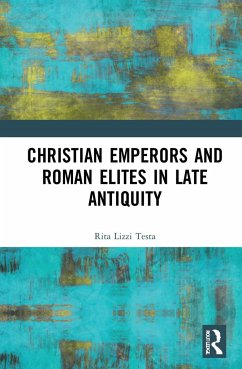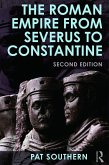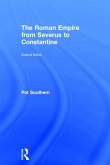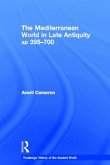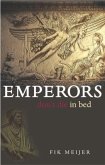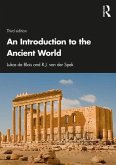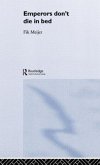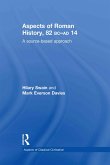This book brings together a number of case studies to show some of the ways in which, as soon as the Roman Senate gained new political authority under Constantine and his successors, its members crowded the political scene in the West.
In these chapters, Rita Lizzi Testa makes much of her work - the fruit of decades of research -available in English for the first time. The focus is on the aristocratics' passion for aruspical science, the political use of exphrastic poems, and even their control of the hagiographic genre in the late sixth century. She demonstrates how Roman senators were chosen as legates to establish proactive relations with Christian emperors, their ministers and military commanders, and Eastern and Western provincial elites. Senators wove a web of relations in the Eastern and Western empires, sewing and stitching the empire's fabric with their diplomatic skills, wealth, and influence, while lively and highly litigious assembly activity still required of them a cultured rhetoric. Through employing astute political strategies, they maintained their privileges, including their own beliefs in ancient cults.
Christian Emperors and Roman Elites in Late Antiquity provides a crucial collection for students and scholars of Late Antique history and religion, and of politics in the Late Roman Empire.
In these chapters, Rita Lizzi Testa makes much of her work - the fruit of decades of research -available in English for the first time. The focus is on the aristocratics' passion for aruspical science, the political use of exphrastic poems, and even their control of the hagiographic genre in the late sixth century. She demonstrates how Roman senators were chosen as legates to establish proactive relations with Christian emperors, their ministers and military commanders, and Eastern and Western provincial elites. Senators wove a web of relations in the Eastern and Western empires, sewing and stitching the empire's fabric with their diplomatic skills, wealth, and influence, while lively and highly litigious assembly activity still required of them a cultured rhetoric. Through employing astute political strategies, they maintained their privileges, including their own beliefs in ancient cults.
Christian Emperors and Roman Elites in Late Antiquity provides a crucial collection for students and scholars of Late Antique history and religion, and of politics in the Late Roman Empire.
"The combination of clarity with the depth and breadth of the issues addressed makes the volume extremely thought-provoking, enriching, and enjoyable to historians acquainted with late-antique studies (and the biases surrounding them)." - Bryn Mawr Classical Review
"The chapters are well signposted, and the variety of topics, along with the instruction Lizzi Testa provides on how to use a variety of sources and methodologies, make this book of interest to a wide variety of readers." - Church History
"The chapters are well signposted, and the variety of topics, along with the instruction Lizzi Testa provides on how to use a variety of sources and methodologies, make this book of interest to a wide variety of readers." - Church History

